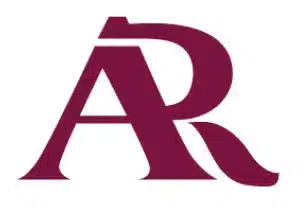Residential Treatment Program
24-Hour Medical, Physical, and Emotional Support

Residential Treatment Program
24-Hour Medical, Physical, and Emotional Support
Focus on Getting Well and Sober
Inpatient recovery programs, also known as residential treatment, offer a controlled environment to overcome addiction. During the carefully structured residential treatment at Arrow Passage Recovery, you are able to completely focus on getting well and sober without the distractions of everyday life.
Counselors meet with you individually and in group settings to guide your recovery. We offer a broad range of services, including Partial Hospitalization, Intensive Outpatient and Outpatient services.
At Arrow Passage Recovery we take care of the enrollment process. We will deal with the insurance company, the travel arrangements, the FMLA paperwork, and other details to allow you to focus on recovery.
Step One: Residential Treatment with Medical Detox
The first step in residential treatment is medically assisted detox. This may be completed at a stand-alone detox unit. Our physicians monitor vital signs while the substances exit the body. Cravings are common during drug and alcohol detox and can be difficult to overcome.
Constant medical care provided during residential treatment helps guard against relapse. Our clinicians provide necessary medicine and medical expertise to ease cravings and withdrawals.
Withdrawal symptoms aren’t pleasant for any drug, but some substances require medical supervision due to potentially dangerous and sometime fatal withdrawal symptoms. Lethal withdrawals are linked to drugs like synthetic opiates, benzodiazepines, alcohol and heroin.
During residential treatment at Arrow Passage Recovery, you will have access to 24-hour medical attention. This attention can mean the difference between relapse and recovery.
Residential Treatment vs. Outpatient Treatment
Residential Treatment
Residential treatment is best for people who:
- Have an unsafe or unstable living situation
- Aren’t intrinsically motivated to recover
- Have a severe addiction or a long history of addiction
- Have serious life problems stemming from the addiction
- Have been through rehab before
- Also have a co-occurring mental illness.
Benefits of Residential Treatment
The benefits of residential drug rehab include:
- The ability to focus on recovery without the stresses of daily life getting in the way
- A high level of around-the-clock support from staff and peers
- Twenty-four hour supervision
Outpatient Treatment
- Have a stable and safe living environment
- Are highly motivated to end their addiction for good.
- Are in good physical and mental health aside from the addiction
- Have reliable transportation to the outpatient facility
Outpatient Benefits
Outpatient drug rehab has a number of benefits:
- It enables you to continue working, going to school or caring for the family while in rehab
- It gives you the opportunity to begin practicing new skills and strategies right away in the “real” world
- It costs less than residential drug rehab
Residential Detox
Detox is the process of allowing traces of drugs or alcohol to leave your body so that brain function can begin to return to normal and treatment for the addiction can begin. Whether you’re going to enter an outpatient or residential drug rehab program, detox is the first step of treatment.
Withdrawal symptoms vary with each type of drug, depending on the neurotransmitter the drug acts on.
One symptom all drugs have in common is intense cravings. Other symptoms include mental health problems like anxiety, depression or paranoia and physical symptoms like nausea, vomiting, diarrhea, body cramps, headache and insomnia.
During medical detox in residential treatment, medications are provided as needed to reduce the severity of symptoms and reduce the amount of time it takes to detox
During detox, assessments give care providers a clear picture of:
- The severity of the addiction
- The range of problems that need to be addressed in recovery.
- The level of motivation to recover
- Whether a mental illness like anxiety or depression is also present.
These assessments help care providers place you in the right program, and they guide the development of an individualized treatment program that will help you achieve sobriety and greater happiness and wellbeing in your life.
After Detox: Treatments Used in Residential Drug Rehab
Detox is not addiction treatment. Detox alone does little to address the addiction, which is far more complex than dependence. After detox, you’ll begin your drug rehab program.
Addiction is the result of changes in the learning, memory and reward centers of the brain and often lead to compulsive substance abuse despite negative consequences. Addiction almost always has underlying causes, such as chronic stress, mental illness or a history of trauma. Additionally, addiction often results in financial, legal, relationship, and physical and mental health problems. Some of these problems may have led to the heavy substance abuse that resulted in addiction, and some may be the result of the addiction.
Successful treatment addresses issues through a variety of therapies and interventions. The Substance Abuse and Mental Health Services Administration recommends a holistic approach to treatment to addresses a range of physical, mental and spiritual issues.2 This approach involves both traditional and complementary therapies as well as a variety of other interventions.
Traditional therapies include medications, psychoeducational classes and cognitive-behavioral therapies that help change dysfunctional thought and behavior patterns that contribute to the substance abuse. Complementary therapies reduce stress and help you look at problems in new ways. Other interventions are used as needed including vocational, educational or legal assistance; life skills classes; or financial literacy or parenting skills programming.
Treatment therapies and interventions will help you:
- Become more aware of your patterns of thinking and behaving and change patterns that lead to unhappiness and substance abuse.
- Develop the skills needed to cope with relapse triggers like stress, cravings and negative emotions.
- Resolve underlying issues that led to the heavy substance abuse in the first place.
- Repair damaged relationships and restore healthy function to your family system.
- Find purpose and meaning in your life.
- Learn how to relax and enjoy yourself without drugs or alcohol.
- Develop healthy habits and make lifestyle changes that support long-term recovery.
During residential treatment, there are plenty of opportunities for rest, relaxation and recreation, which are all important for ongoing sobriety.
Residential Drug Rehab FAQ
Taking the first step and entering a treatment program is often one of the most difficult parts of recovery. Knowing what you can expect in residential treatment can make the decision to seek treatment easier. Here are some of the most frequently asked questions about residential drug rehab.
Pack enough clothes to last you at least a week. Laundry facilities are available for your use. Leave electronics and valuables, including jewelry and cash, at home. Bring whatever toiletries you need. You may also want to bring things to do during relaxation periods, such as a book or crossword puzzles. Bringing a journal and plenty of pens is always recommended, since reflecting in a journal is a benefit to recovery.
Inpatient drug rehab works for most people who participate fully in their treatment plan and stay in treatment for an adequate amount of time, according to the University of Pennsylvania Health System.3 Still, relapse rates for addiction range from 40 to 60 percent, according to the National Institute on Drug Abuse. Recovery comes with challenges, and setbacks and relapse are a normal part of the recovery process. It’s essential to remember that relapse doesn’t mean the end of recovery or that treatment has failed. Rather, it’s an indication of a missing coping skill. If a relapse occurs, approaching it with a positive attitude and getting help right away dramatically increases the chances that you’ll get right back to recovery, stronger and more motivated than ever. During treatment, you’ll learn that relapse doesn’t occur out of the blue, and you’ll learn to recognize the signs that indicate a relapse may be imminent
Residential Drug Rehab Can Transform Your Life
During residential drug rehab, you’ll gain a whole new level of self-awareness and explore your strengths, values and interests. You’ll improve your self-confidence and self-esteem, and you’ll develop skills that improve your relationships and help you cope with the difficulties of life. You’ll develop healthier, more realistic ways of looking at the world, and you’ll work to resolve the issues and problems in your life that can make recovery difficult.
Treatment is designed to help you improve your life on all fronts and remove the need and desire to abuse drugs or alcohol. High quality programs use therapies that are proven through research to help people achieve a lifetime of recovery. Getting help now will improve your quality of life and put you on the path to achieving authentic happiness in a life free from the confines of addiction.
Resources
- https://www.drugabuse.gov/publications/drugfacts/understanding-drug-use-addiction
- https://www.samhsa.gov/find-help/recovery
- https://www.drugabuse.gov/publications/principles-drug-addiction-treatment-research-based-guide-third-edition/frequently-asked-questions/how-long-does-drug-addiction-treatment
- https://www.uphs.upenn.edu/addiction/berman/treatment/















